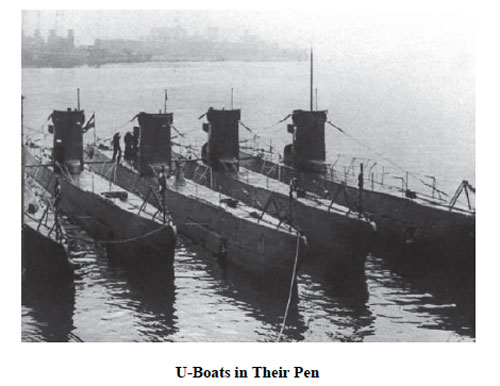
Joe was concerned that Britain seemed to be spending the entire naval defence budget on building bigger and faster battleships such as the Dreadnoughts whereas it seemed the Germans were slowing down on constructing battleships and concentrating on building submarines, or U-boats as the British called them. U-Boot was a shortening of Unterseeboot, which translates to ‘undersea boat.’
Churchill quoted:
‘The Admiralty had demanded six ships; the economists offered four; and we finally compromised on eight.’
Germany had completed and launched twenty U-Boats by the beginning of 1912. Surprisingly, Britain had over fifty but not of the sophistication of the German U-Boats.
Joe kept his commander in Washington up-to-date with what was happening in Europe; they both had concerns at the pace of the naval arms race. America was also building up its fleet in response. Under the President Theodore Roosevelt the US Navy grew from sixth largest in the world to second. Only Great Britain had a larger fleet.
Joe was convinced the Germans had it right in regards to the role of the submarine in modern naval warfare. Not only were the U-Boats the most sophisticated submarine afloat, they were the most deadly.
He believed the Germans would, if in a state of war, not only target Navy ships but also the civilian fleet, disrupting supplies and demoralising the civilian population.
In the early part of the 20th century America led the world in submarine technology but they had not continued to develop their advantage. As a result the American submarine fleet had fallen behind Britain, Germany and Japan.
Joe had made recommendations to Washington relating to developing new vessels but he had been largely ignored.

Confidential Report to Rear Admiral Eugene Leutze
23rd October 1911
Dear Sir,
The naval rivalry has played a major role in deepening the antagonism between Britain and Germany. I believe an arms control agreement designed to diminish the competition in shipbuilding may ease tensions and promote cooperation. I have met with Winston Churchill, First Lord of the Admiralty; he is in agreement that arms control would benefit both Great Britain and Germany. The British Government wish to improve Anglo-German relations. It is my understanding from the brief I received from Mr Churchill; Germany’s leaders are not blind to the potential strategic advantages that might accrue to them from arms control. At this stage Britain and Germany have failed to achieve a negotiated solution to their naval competition, it was not for want of trying. I am convinced that both countries will continue to pursue naval arms control and for all our sakes I hope they are successful.
Winston used the term “a naval holiday” in describing his ambitions.
Yours truly,
Captain J Doherty